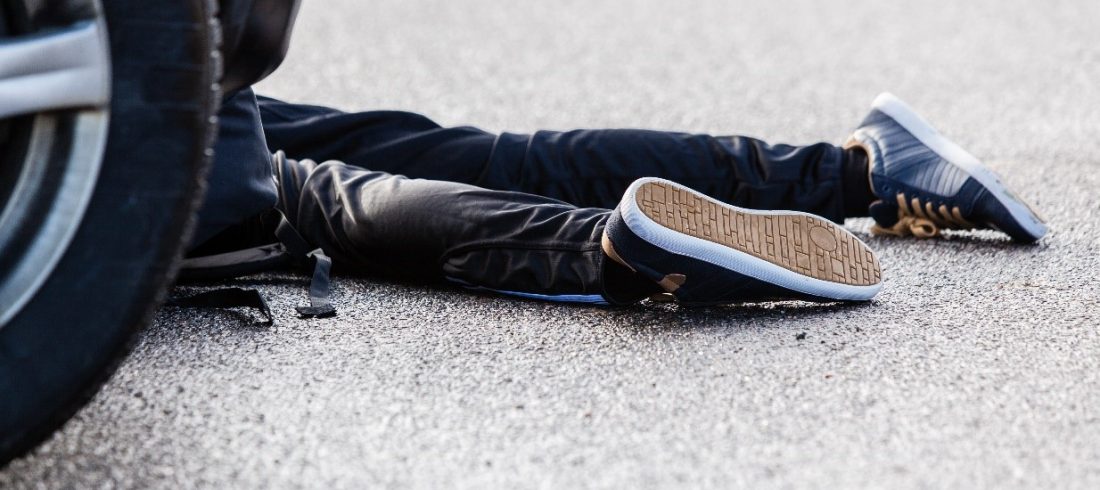If you have been a victim of violent crime, you may have found it difficult to move on with your life. Perhaps you are still struggling with the repercussions of your injuries, or with the emotional impact of the event. You may even be finding it hard to carry on with your day-to-day life as it was before the incident and struggling to maintain relationships or employment.
It’s important to know, in this situation, that there are many sources of support you can turn to as a victim of violent crime. However difficult it may be, you are not alone.
Some sources of support you will likely be familiar with, such as claiming benefits or getting medical support through your GP. Others, however, are less well known. For instance, you may not be aware that you could be entitled to compensation from the Criminal Injuries Compensation Authority (CICA).
In this post, we’ll help you to understand whether you might be able to claim compensation through CICA. We’ll answer some basic questions, such as “what is the Criminal Injuries Compensation Scheme?”, and we’ll talk you through the process of making a claim.


What is the Criminal Injuries Compensation Scheme?
Let’s begin with one of the most fundamental questions: what is the Criminal Injuries Compensation Scheme?
In simple terms, the Criminal Injuries Compensation Scheme is a government-funded scheme administered by CICA. It provides compensation for those who have suffered a physical or mental injury as a result of violent crime.
As we’ll explain more fully below, CICA awards compensation based on the nature and severity of the injuries you have suffered. Its purpose is both to help offset any difficulties you may have faced as a result of the injury, and also to acknowledge the suffering you have experienced. While no amount of money can fully undo the impact of such an event, the recognition of this impact by an official government body can be extremely helpful.
So, now that you know what the Criminal Injuries Compensation Scheme is, let’s look at how you can make an application.
The conditions for making a CICA claim
Before starting a CICA claim, there are a few conditions you’ll need to be aware of. Unfortunately, not everyone who has been injured as a result of a criminal act can claim, and there are some technicalities that can result in valid applications being rejected. That’s why it can be very helpful to get professional legal support to help you with your claim.
Seek other sources of compensation
The first thing you should know is that CICA considers the Scheme to be, in its own words, “one of last resort.”
What this means is that CICA will expect you to look for other sources of compensation. This includes:
- Seeing if you are able to claim compensation directly from your assailant
- Speaking to your employer about any insurance entitlements
- Applying for all benefits to which you are entitled
As you can see, there are a number of avenues you’ll need to pursue alongside a CICA claim. If you cannot demonstrate you have tried to seek financial support elsewhere, your CICA claim may be rejected – even if, in principle, you are entitled to compensation.
If you are already claiming benefits, you may be wondering if a CICA claim could affect this. Read our blog post on this topic to find out more.
Do not delay your claim
Nevertheless, it’s important that you don’t delay your CICA claim while looking for other sources of support.
According to CICA’s own guidance, you must make your application “as soon as it is reasonably practicable for you to do so.” This should be within two years of the incident. If you apply any later than this, you may be asked to justify the delay and your application may only be accepted in exceptional circumstances.
For this reason, the CICA guidance stresses that “you should make your application to CICA as soon as possible” even if you are in the process of seeking compensation or damages elsewhere. They do not advise you to wait for the results of other applications before you claim.
If you are wishing to apply for compensation outside of the two year time limit, it is advisable that you seek professional legal support. The reason for your delay and any supporting evidence is crucial to the success of your out of time application. A professional legal representative will have the knowledge and skills required to assist you in overcoming the two year time limit, and convincing the CICA to consider your application.
Make sure you have reported the incident to the police
While it is not necessary for your assailant to have been convicted – or even identified – in order to receive compensation from CICA, you will have to have reported the incident to the police. As you’ll see below, some of the information from this report may need to be submitted as part of the CICA application itself.
This should be another key consideration when it comes to making your claim in a timely fashion. You’ll want to ensure the crime is reported to the police as soon as possible. Any delays in making a report can have an impact on your CICA claim.
However, there are other sources of support available that do not require you to have reported the crime to the police. An example of this is the services provided by Victim Support.


How do I submit my CICA claim?
In order to make your CICA claim, you will need to submit an online form using the government’s website.
The application will ask for a number of details relating to your personal circumstances, the nature of the crime, and the injuries you suffered.
For instance, you’ll need to provide:
- The date and location of the crime
- Your crime reference number
- The name and address of your GP
- Details of any unspent criminal convictions
CICA may ask for other details, or for further information to help support your claim. It’s important that you provide all the information they require in a timely fashion. Your claim can be delayed or even dismissed if you do not tell CICA everything they need to know and provide any evidence they ask for.
How much compensation will you receive?
As we mentioned above, CICA pays compensation based on the nature and severity of the injuries you suffered. This includes both physical and mental injuries. How long this process will take, however, depends on the nature of your claim.
Prior to 1996, the amount of compensation awarded was determined in relation to equivalent payouts in common law damages. This was a relatively complex process. CICA has subsequently adopted a tariff system, in which specific injuries are assigned specific amounts. These amounts are set by parliament and are not subject to any variation or negotiation.
However, there are some issues that emerge from this system. If your injuries are miscategorised, for instance, you may receive less than you deserve from the scheme. This is particularly a problem with mental injuries, which are inherently difficult to classify.
If CICA does award you an amount that you think is not fitting for the severity of your injuries, the decision can be appealed. However, doing so can significantly prolong the process. For this reason, as for a number of others, it can be extremely beneficial to seek professional legal advice.
HNK Solicitors can help with your CICA claim
A CICA claim can be an important way to move past the effects of violent crime. As we discussed above, it is not simply the money that can help – though of course it certainly can. It’s also the acknowledgement of the suffering you’ve experienced that can be essential.
Nevertheless, a CICA claim is not a simple process. As you may be able to tell from the above, there are a number of factors you’ll need to take into account when making your claim. You’ll need to look for other sources of support without delaying your claim, while ensuring that your injuries are properly assessed and that none of the important deadlines are missed.
This may seem like a lot, particularly as you may still be struggling with the aftermath of the incident. That’s why it can be extremely beneficial to get support from solicitors with experience of making CICA claims.


Here at HNK Solicitors, we have an expert team with extensive experience of helping clients to successfully submit CICA claims. With an in-depth knowledge of all the regulations and processes involved, we can help you to ensure you do not fall foul of technicalities and that you are awarded the full amount that you deserve.
We offer free consultations, so if you have been injured as a result of violent crime and are considering making a CICA claim, get in touch today. If we think you have a claim, we can take it up on your behalf on a no-win, no-fee basis.
To arrange a consultation, fill out the form on our website to request a call back. Alternatively, call us on 0151 203 1104 or email us at enquiries@hnksolicitors.com.







